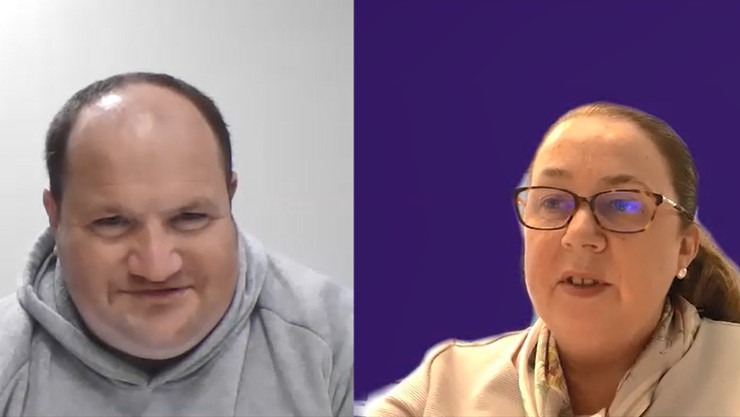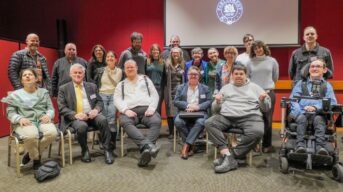
How has the Coronavirus pandemic affected people with intellectual disability?
“I couldn’t see my parents over Easter. It upset me so much. I was alone. I felt so isolated.”
Anthony Mulholland has told the Disability Royal Commission about his life during the Coronavirus pandemic.
Anthony told Commissioners he found social isolation very difficult. Isolation affected Anthony’s mental health.
“I like to meet people face to face, I am a social person,” he said.
“I’m used to being an advocate and helping people. I listen to people and help them.”
“How could I help people in lock down? How could I help people when we had to stay away from each other? How could we reassure them everything will be okay when they are scared?”
Connecting through technology
Anthony struggled with some of the technology needed to stay connected during lockdown.
“I have a phone but technology is not easy – it’s not easy for me to do video calls. I don’t have everything set up.”
“Not all persons with disability have smart phones and good internet.”
Accessing information
Anthony has found information about the pandemic confusing.
“There were different messages from the Prime Minister and the Premier. It was very confusing for me.
“I was confused by there being multiple chief medical officers. Who is in charge? Which government is in charge?”
Learning and growing
Anthony feels lucky to have a good support network.
“I am very lucky with my support service. I need someone I trust to provide information. That direct line of communication made it easy for me. My parents have been good too.”
Anthony says he has learnt a lot about himself during this time.
“I did learn some new things. Usually I am someone that worries about other people and how they feel.”
“During the Coronavirus I have learnt that I have to look after myself and my mental health too.”
How is the pandemic affecting people with intellectual disability?
Many people with intellectual disability have struggled with the same things Anthony has struggled with during the pandemic:
- feeling scared
- not understanding the rules
- having trouble getting information
- difficulties with technology.
For our recent report Leave no one behind, we asked people with intellectual disability about their experience of the pandemic.
People told us is they want more information about the pandemic.
They said information should be in Easy Read.
The report makes 12 key recommendations to improve the Australian Government’s COVID-19 response plan for people with disability. Read more in Getting the voice of people with intellectual disability heard during the pandemic.
Anthony Mulholland is a long time disability advocate and member of Council for Intellectual Disability. We hope that Anthony’s evidence will help the Royal Commission make recommendations for how to keep people with intellectual disability safe during this pandemic and other major emergencies.
Find out more



 1800 424 065
1800 424 065 














